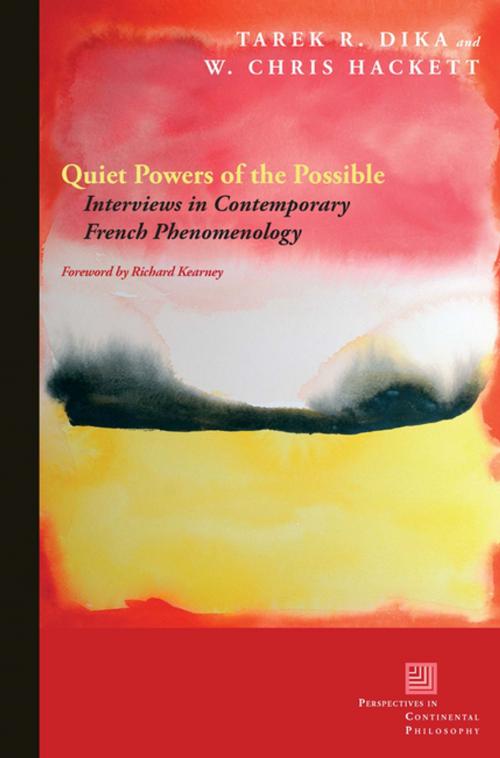Quiet Powers of the Possible
Interviews in Contemporary French Phenomenology
Nonfiction, Religion & Spirituality, Philosophy, Phenomenology, Modern| Author: | Tarek R. Dika, W. Chris Hackett | ISBN: | 9780823264735 |
| Publisher: | Fordham University Press | Publication: | February 26, 2016 |
| Imprint: | Fordham University Press | Language: | English |
| Author: | Tarek R. Dika, W. Chris Hackett |
| ISBN: | 9780823264735 |
| Publisher: | Fordham University Press |
| Publication: | February 26, 2016 |
| Imprint: | Fordham University Press |
| Language: | English |
Quiet Powers of the Possible offers an excellent introduction to contemporary French phenomenology through a series of interviews with its most prominent figures.
Guided by rigorous questions that push into the most important aspects of the latest phenomenological research, the book gives readers a comprehensive sense of each thinker’s intellectual history, motivations, and philosophical commitments.
The book introduces readers to debates that have not previously been accessible to the English-speaking world, such as the growing interest in the phenomenological concept of life in its affective and even vital dimensions, the emerging dialogue with the analytic philosophy of mind and language, and reassessments of the so-called theological turn.
The diversity of approaches collected here has its origin in a deeper debate about the conceptual and historical foundations of phenomenology itself. In this way the book offers the most accessible and wide-ranging introduction to French phenomenology to have appeared in the English-speaking world to date.
Quiet Powers of the Possible offers an excellent introduction to contemporary French phenomenology through a series of interviews with its most prominent figures.
Guided by rigorous questions that push into the most important aspects of the latest phenomenological research, the book gives readers a comprehensive sense of each thinker’s intellectual history, motivations, and philosophical commitments.
The book introduces readers to debates that have not previously been accessible to the English-speaking world, such as the growing interest in the phenomenological concept of life in its affective and even vital dimensions, the emerging dialogue with the analytic philosophy of mind and language, and reassessments of the so-called theological turn.
The diversity of approaches collected here has its origin in a deeper debate about the conceptual and historical foundations of phenomenology itself. In this way the book offers the most accessible and wide-ranging introduction to French phenomenology to have appeared in the English-speaking world to date.















